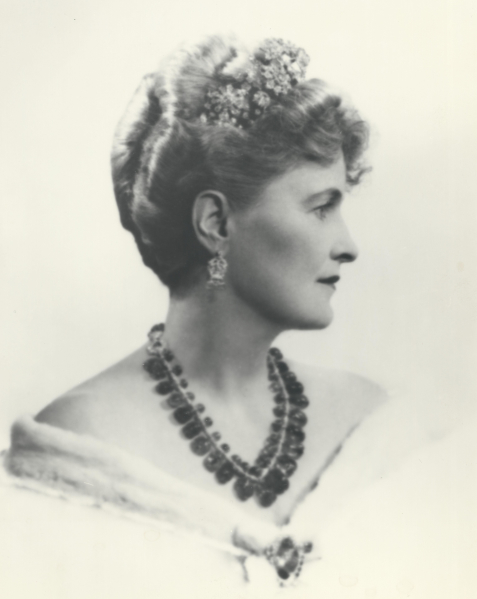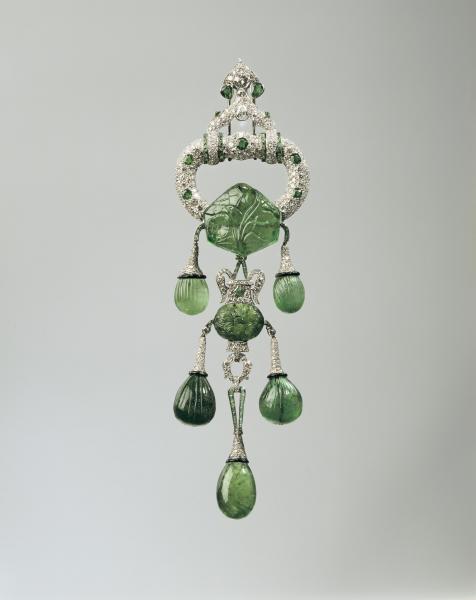Cartier: Marjorie Merriweather Post's Dazzling Gems
One of Cartier’s most important and enduring clients, Marjorie Merriweather Post commissioned some of the most exquisite jewelry sets, fashionable accessories, and finely-crafted jeweled frames of any American collector. Following their return from the Grand Palais where they dazzled in the exhibition Cartier: Le Style et L’Historie, jewelry and objects from Hillwood’s Cartier collection will offer a notable perspective on the important role that Cartier played in the life and style of this American icon.
 The Relationship
The Relationship
Marjorie Merriweather Post frequented the Cartier firm’s three establishments from the 1920s through the 1960s. Pierre Cartier, the brother with whom she dealt most directly, shared an interest in Russian imperial art and even sold Post her first piece of Faberge. Post and Cartier collaborated in designing jewelry and accessores for many years, developing and refining her personal style while creating exquisite works of art. Sketches from the Cartier archives throughout the exhibition illustrate this fruitful partnership.
 The Jewelry
The Jewelry
An exotic brooch made of seven carved Indian emeralds (considered to be one Cartier’s finest creations,) a glittering diamond and sapphire necklace, and other impressive pieces collected in times of war and peace, prosperity and depression, show the changing styles and enduring quality of Marjorie Post and Cartier’s relationship. Situated among paintings, photos, and attire, each piece is contextualized within the Post’s life and times.
Frames and Accessories
In addition to buying their latest jewelry designs, Marjorie Post patronized Cartier by purchasing an array of jeweled objets d’art. In the 1920s and 30s, she commissioned a number of picture frames for family photographs, paying attentive attention to the materials and colors in order to enhance each portrait. Other personal luxury items, including a silver and enamel dressing table set and a beaded and platinum evening bag as well as glamorous portraits, paintings, and historic photos and correspondence, illustrate Post’s enduring use of Cartier to contribute to her persona.
The exhibition is supported by the Marjorie Merriweather Post Foundation, Ellen MacNeille Charles, Dina Merrill Hartley, Donald G. Preston, Jr. & Frank C. Torres III, Susan & David Thoms, Diane B. Wilsey, and
All exhibitions and programs are funded in part by the U.S. Commission on the Fine Arts through the National Capital Arts and Cultural Affairs program.



